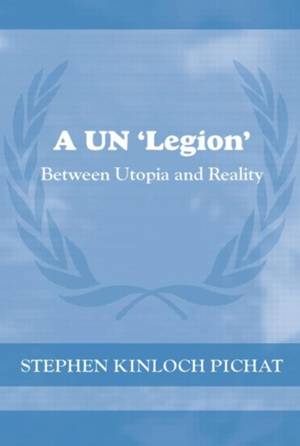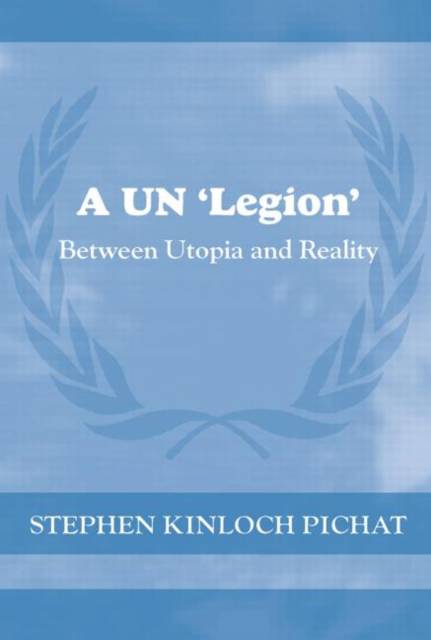
- Retrait gratuit dans votre magasin Club
- 7.000.000 titres dans notre catalogue
- Payer en toute sécurité
- Toujours un magasin près de chez vous
- Retrait gratuit dans votre magasin Club
- 7.000.0000 titres dans notre catalogue
- Payer en toute sécurité
- Toujours un magasin près de chez vous
Description
A fresh examination of the origins, evolution and future of proposals for a UN 'Legion' - a permanent military force recruited, trained and deployed by the UN.
This new book shows how this idea has grown, re-emerged and evolved in direct connection with the development of UN international military forces. The legionnaires have been seen as the future representatives of a modern constabulary, international police or humanitarian chivalry. They have also invariably evoked the idea of mercenaries and resurrected fears of supranational government and a 'world army'. Such a force has been unattainable when needed, not needed when attainable, revealing the deficiencies of the international system in the perspective of a particular task. The idea highlights the inadequacy of the means as compared to the objectives, and the limits of the UN's capacity to adapt itself to new challenges.
This study examinmes how the project of a UN 'Legion' is conditional on the viability of the original Utopia, and vice versa. It also argues that the extreme polarization of the debate may reflect a tendency to negate the inherent contradictions of reality, reminding us of the historical dimension of the building of an international organization, a 'work in progress'.
Spécifications
Parties prenantes
- Auteur(s) :
- Editeur:
Contenu
- Nombre de pages :
- 352
- Langue:
- Anglais
- Collection :
Caractéristiques
- EAN:
- 9780415652957
- Date de parution :
- 02-08-12
- Format:
- Livre broché
- Format numérique:
- Trade paperback (VS)
- Dimensions :
- 156 mm x 234 mm
- Poids :
- 494 g

Les avis
Nous publions uniquement les avis qui respectent les conditions requises. Consultez nos conditions pour les avis.






